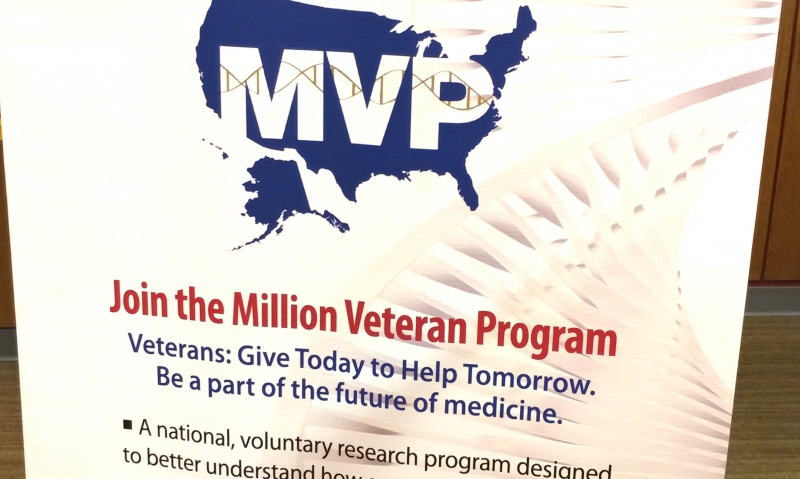
Legion helps push VA’s Million Veteran Program past 580,000 samples
The American Legion National Headquarters office in Washington, D.C., hosted a Department of Veterans Affairs (VA) Million Veteran Program (MVP) event on June 30 to help VA researchers better understand how genes affect health and illness, with the goal of improving health care for veterans.
“The VA is building the largest genomic database on the planet by collecting DNA blood samples from one million veterans,” said American Legion National Media Relations Director Joseph Plenzler. “They have collected more than 580,000 samples to date. This database will help medical researchers develop precision therapies based on each veteran’s body composition.”
Participation in MVP is entirely voluntary and will not, in any way, affect veterans’ access to health care or benefits. Participation takes about 20 minutes which includes:
• Filling out surveys through the mail;
• Completing a one-time study visit to a participating VA medical center to provide a blood sample for genetic analysis;
• Permitting authorized MVP staff to access information in a veteran’s medical record on an ongoing basis; and
• Agreeing to future MVP contact.
MVP Director Sumitra Muralidhar said the program aims to be one of the largest research programs on genes and health in the United States. With an expected enrollment of one million veterans over the next five to seven years, MVP provides an important opportunity to understand genes and health by allowing current veterans to help transform health care not only for themselves, but for future generations of veterans as well.
“Our ultimate goal was really to be able to provide precision medicine, improved care and personalized health care to veterans, and to the population at-large, eventually,” said Muralidhar. “A lot of information is not present in the Electronic Health Record; you do have some but not everything. There are (loopholes) in there. To fill those gaps, we have these veterans fill out these questionnaires – part of it is their lifestyle, their military exposure (specifically for veterans and active duty), their environmental exposure and even their nutritional status. If you know the genetics of a person, then you can prescribe the medication that works for them or use a dosage that is appropriate for them.”
Muralidhar said research findings based on MVP may lead to new ways of preventing and treating illnesses in veterans and all Americans. Specifically, this research will help answer questions like:
• Why does a treatment work well for some veterans but not for others?
• Why are some veterans at a greater risk for developing an illness?
• How can certain illnesses be prevented in the first place?
“In order to make these discoveries, you need very large numbers of people with and without a condition,” Muralidhar said. “We felt that if we at least (reach one million) veterans, then we’ll have enough representation of all the illnesses we see commonly in veterans.”
Plenzler said veterans from the Legion’s D.C. office helped push MVP past 580,000 samples. “Their DNA sample collection is now larger than the population of Oslo, Norway,” he said.
Thanks to a partnership with the U.S. Department of Defense, which has helped make MVP available to active duty members, Muralidhar is hopeful that MVP will reach its enrollment goal of one million veterans by 2021. “We want to be able to get all of this information and create an infrastructure where we can foster scientific research that allows for new discovery in all these areas,” she said, “and then be able to translate these discoveries into the clinic.”
The American Legion encourages Legionnaires receiving health care through the VA to participate in the MVP. MVP will have a booth at the Legion’s 99th National Convention in Reno, Nev., next month to enroll participants.
For more information about MVP, visit www.research.va.gov/mvp or call (866) 441-6075.
